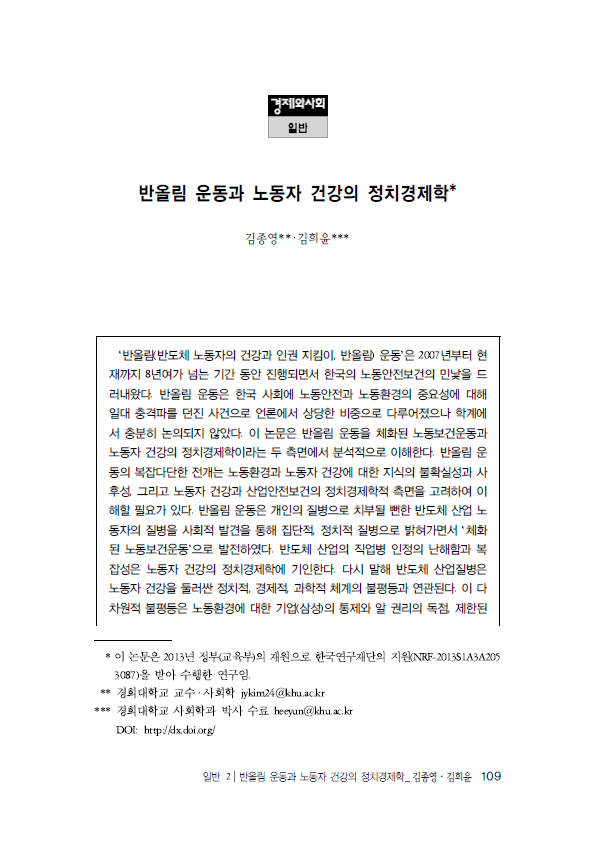
| Title |
: The SHARPS Movement and the Political Economy of Labor Health |
| Date |
: 2016. 03 |
| Journal title |
: Economy and Society |
| Author |
: Jongyoung Kim and Heeyun Kim |
| Contact us |
: csts@khu.ac.kr |
| Abstract |
: The SHARPS (Supporters for the Health And Rights of People in the Semiconductor industry) movement, which lasted from 2007 until 2016, shocked Korean society, shedding important light on labor safety and the environment. Korean media paid a great deal of attention to this movement; however, it has not been seriously discussed in the academic world. This article views this social movement from two analytical perspectives: the embodied health movement and the political economy of labor health. The complex development of SHARPS can be understood best by considering the unpredictability and insufficiency of knowledge about disease, as well as the political economy of labor health and the environment. What had been
previously considered to be diseases of particular individuals was socially discovered and transformed into collective and politicized disease, and the SHARPS struggle was developed into the embodied social movement. The elusiveness and complexity of disease in the semiconductor industry stems from the political economy of labor health. In other words, this collective industrial illness is associated with unequal political, economic, and scientific systems dealing with labor health. The multi-dimensional inequalities are manifested in the industry’s control and monopoly on labor and environmental information, the Korean government’s conservative management of workers’ compensation, a rigid legal system and high burden of proof for determining the causality of disease, and an inflexible scientific system that studies the causes of disease. The SHARP struggle gained legitimacy by collecting evidence, and the associated formal institutes began to embrace the movement’s demands. The SHARPS movement exposed the contradictions inherent in industrial, scientific, and legal systems dealing with labor health and the environment, and it demanded the
reconstruction of related institutions.
Keywords: Embodied Health Movement, Health Social Movement, Political Economy of Labor Health, Popular Epidemiology, Samsung Semiconductor, SHARPS
Click the following link for downloading the article: https://www.kci.go.kr/kciportal/ci/sereArticleSearch/ciSereArtiView.kci?sereArticleSearchBean.artiId=ART002089132 |
|
